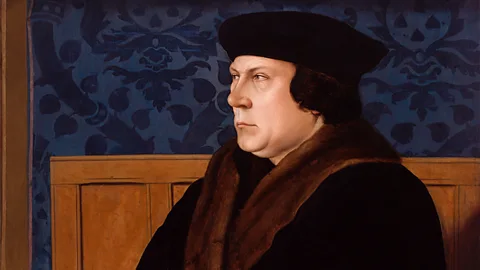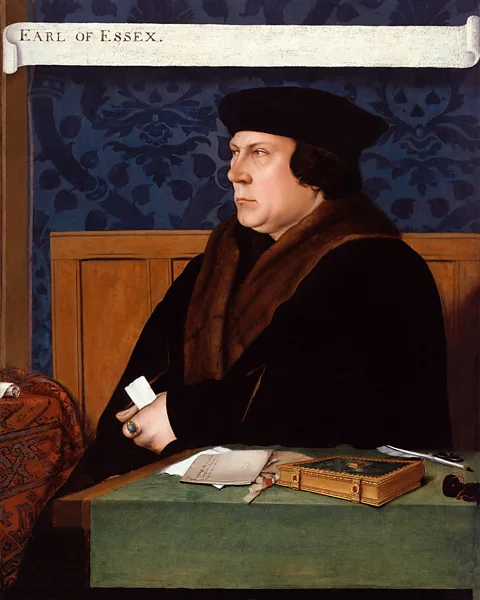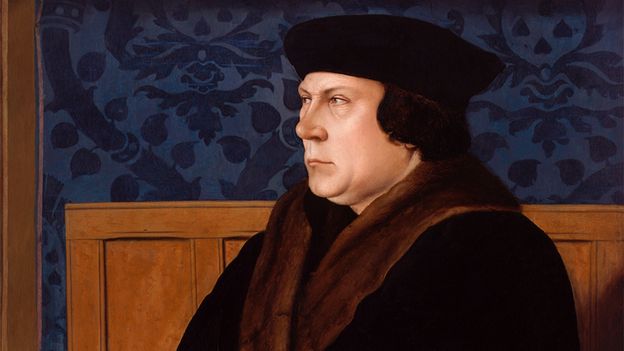
National Portrait Gallery
With her acclaimed Wolf Hall trilogy, novelist Hilary Mantel has painted a sympathetic portrait of a figure historically labelled a villain. However, have her representations also overlooked key aspects?
Thomas Cromwell, nearly 500 years after his demise, has been revitalized in public consciousness through Hilary Mantel’s Wolf Hall series. While historians have long debated the complexities of Henry VIII’s shrewd chief minister and his roles in the Reformation, Mantel’s fictionalized portrayal might overshadow Cromwell’s historical reality.
In the future, when people think of Cromwell, they may visualize actor Mark Rylance from the television adaptation rather than the gruff, heavy-set face depicted in Hans Holbein’s contemporary portrait. By redefining Cromwell’s image, Mantel’s work ensures that he is remembered in a more favorable light for years to come.

National Portrait Gallery
From March 23, US viewers can see Rylance reprise his role as Cromwell alongside Damian Lewis as King Henry in the six-hour adaptation “Wolf Hall: The Mirror and the Light,” covering the final book of Mantel’s trilogy. The series aims to simplify the intricate narrative of Cromwell’s downfall, culminating in his treason execution in 1540, accompanied by dialogue derived largely from Mantel’s text.
Despite being considered the least successful novel in the series, “The Mirror and the Light” garnered acclaim for its television adaptation, with the Guardian praising its craftsmanship. Yet, questions linger about where artistic license ends and historical fact begins. The critiques highlight aspects where Cromwell’s actions, particularly regarding Anne Boleyn’s execution, were downplayed or reimagined.
Historians like Tracy Borman and Samantha Rogers acknowledge Mantel’s detailed research but also note that her narrative glosses over some controversial elements of Cromwell’s character and actions, particularly in relation to his involvement in darker events like torture. They argue that while her work is well-founded, it creates an overly sympathetic portrayal of Cromwell that overlooks some historical complexities.




